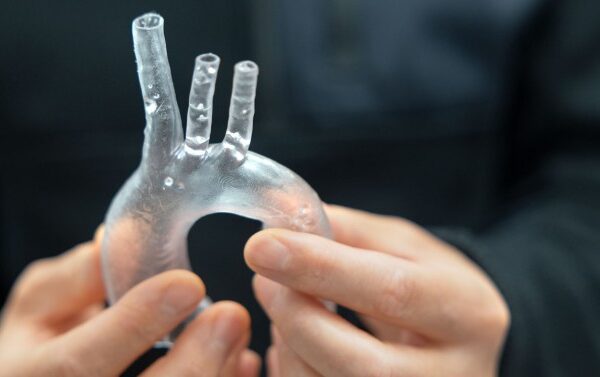Technology Summary
This technology is a vacuum helmet that prevents the spread of patient aerosols during medical examinations and procedures while maintaining easy access to the patient’s nose and mouth.
Technology Overview
Clinical encounters of dentists and otolaryngologists inherently expose these health care professionals to a daily risk of airborne transmissible illnesses, such as SARS-CoV-2 infection. Currently, standard personal protective equipment (PPE) is the primary layer of protection for those clinicians. However, PPE items are subject to supply shortages, are usually single-use, and do not provide complete protection. Additional safety measures, such as negative-pressure aeration in clinic rooms, is economically and structurally impractical in many outpatient settings and practices. Therefore, there is an imminent need for new technologies to prevent the spread of patient-expelled aerosols and droplets with enhanced effectiveness and reduced cost.
This technology is a vacuum helmet device that overcomes these obstacles, eliminating nearly all (100% of the airborne droplets and 99.6% of all cough droplets) patient-expelled droplets. It is low-cost, easy to use, easy to disinfect or dispose, and rapidly deployable. The helmet has an accessible face opening or other accessible slots for easy access by clinicians. Additionally, it has an opening for connecting the helmet to a source of negative pressure, such as a vacuum particle separator, which is commercially available. The access port and vacuum exit port are modular and can be customized without diminishing the desired outcome. As such, this technology provides a cost-effective and efficient approach to preventing droplet spread during examinations and procedures.
Potential Applications
- Clinician protection against airborne transmissible diseases during dental or otolaryngological examinations and procedures
- Decreasing turnover time between patients due to clinical room ventilation requirements, thus increasing clinical output safely
Advantages
- Highly efficient in eliminating wearer-expelled droplets (100% of the airborne droplets and 99.6% of all cough droplets)
- Easy access to a patient’s nose and mouth during medical procedures
- Low manufacturing and maintenance cost
- Configurable for single use or may be disinfected and reused
Publications
- Press release: “Helmet design protects dentists, doctors from COVID-19.” Cornell Chronicle. January 26, 2021.
- Jia et al. “Simulation of a vacuum helmet to contain pathogen-bearing droplets in dental and otolaryngologic outpatient interventions.” Physics of Fluids. 2021.
Licensing Contact

Donna J. Rounds
646-962-7044
djr296@cornell.edu
Inventors
Patents
- Filed






